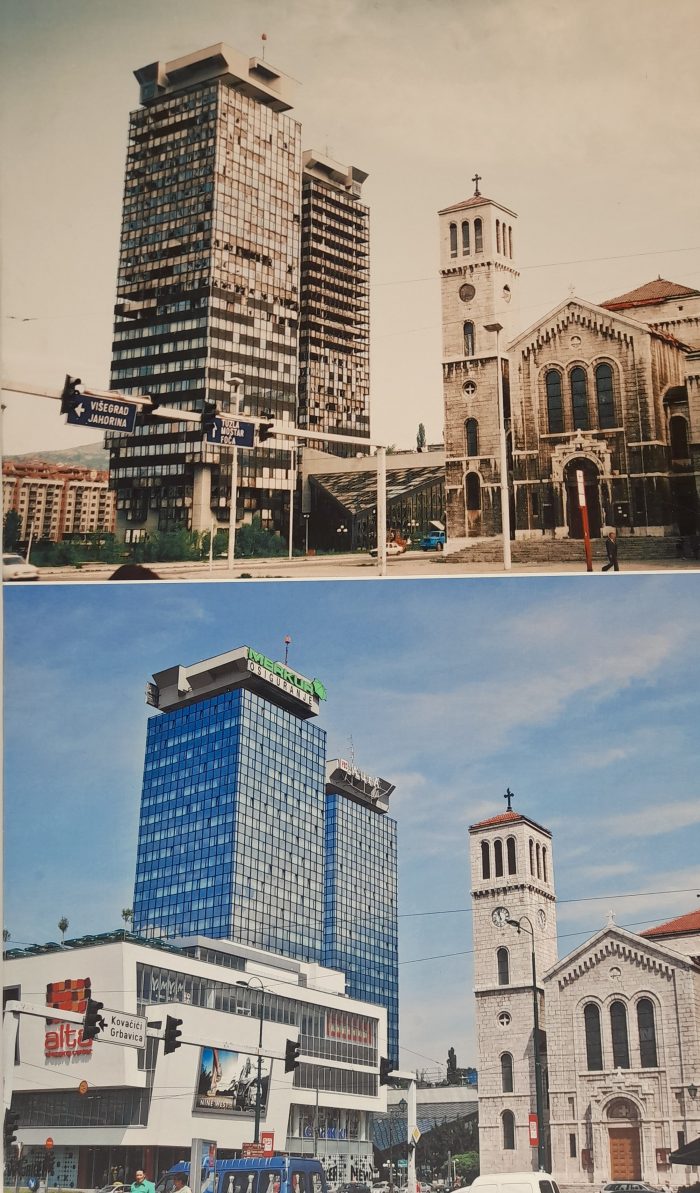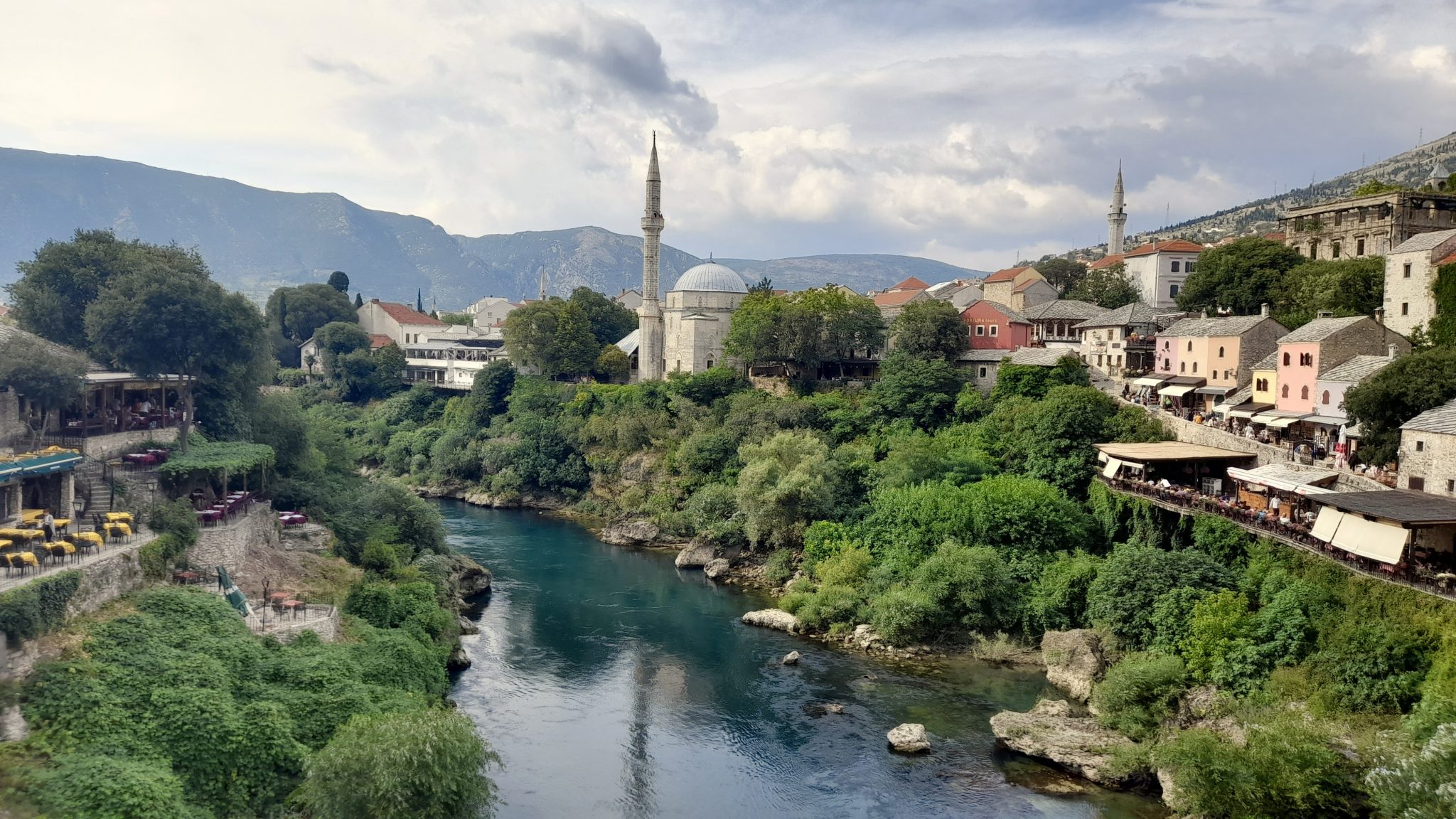11/08/2022
Can US sanctions avert chaos in Bosnia?
Amid rising political tensions in the Western Balkans, Financial Crime Digest has examined the steadily growing US sanctions regime, joined by the UK, which targets major Bosnian Serb, Croat and Bosniak political leadership for “politically destabilising activities” as well as alleged high-level corruption. A lack of cooperation from the European Union (EU), and failures of UK-US coordination, experts said, has hindered the effectiveness of these sanctions programmes. Meanwhile, upcoming national elections may see the furthering of secessionist activity undermining Bosnia and Herzegovina’s (BiH) existing political structure formed by the 1995 Dayton Peace Accords.
A slow burning political crisis in Bosnia
In October, Bosnians will return to the polls to vote for the country’s three presidents in an election that may prove decisive for the future of BiH.
Experts told Financial Crime Digest that re-election of the current leadership would enhance their mandate, entrenching alleged corruption and secessionist activity in the country. The lead-up to the election comes amid increasing US sanctions against Bosnian politicians. It has also been marked by a political battle over controversial electoral reforms proposed by High Representative to BiH Christian Schmidt, whose position was created in the wake of the Dayton Accords and enjoys veto powers over national legislation.
Thousands of protestors recently gathered in the Bosnian capital Sarajevo in opposition to the election reform proposal brought by Schmidt. The proposal would have eliminated “cross-ethnic voting”, with Bosniaks, Serbs, and Croats each electing their own president. Following the protests, Schmidt appeared to back away from the proposal, introducing minor technical reforms instead.
The electoral reform controversy is but one manifestation of the faltering of political structures established at the end of the Bosnian War, experts said. The Dayton Accords split the country into a Republika Srpska (RS) entity almost entirely populated by ethnic Serbs, and a multi-ethnic BiH Federation of Bosniaks and Croats. The two entities are overseen by a national government with three presidents, each representing a major ethnic group.
Wolfgang Petritsch, who served as High Representative for BiH between 1999-2002, said that western intervention established a governance system which is cracking under widespread political corruption, ethnic division, and international apathy.
“Dayton arrested the war, but it is not a blueprint for a viable BiH,” Petritsch said. “Because the Croats don’t have their own entity, they have to cooperate on the BiH Federation level with the Bosniaks. So, it usually takes a very long time to form a coalition government or to establish various institutions post-election. This will be a problem after the next election as well. Now the Bosnian Serbs, led by [member of the Bosnian presidency and Republika Srpska leader] Milorad Dodik, are manoeuvring towards secession.”
To combat secessionist activities that “undermine implementation of Dayton” and to target government corruption in Bosnia, the US has imposed a series of sanctions against political figures representing each of the three major ethnic groups. The sanctions regime was largely re-enlivened in the final days of the Barack Obama administration, rose further under the Donald Trump administration, and is continuing to grow under President Joseph Biden.
A US dual-purpose sanctions regime in BiH
The US State Department and US Treasury’s Office of Foreign Assets Control (OFAC) began rolling out sanctions against leading political targets in BiH in 2017. The first designation, made pursuant to a 2003 executive order and issued three days before Barack Obama left office, targeted Dodik for obstructing the Dayton Accords by defying a constitutional court order.
Six months after the Obama White House designation, OFAC under the Donald Trump administration designated Dodik a second time, again for undermining Dayton. In 2020, then Secretary of State Mike Pompeo announced the public designation of Amir Zukic, former General Secretary of the Bosniak Party of Democratic Action (SDA), accompanied by a travel ban, this time citing corruption as the cause of the designation.
US foreign policy towards BiH has been marked by a bipartisan approach, with the Trump administration directly picking up from the Obama-era State Department’s lead and the Biden administration furthering the same aims. Bosnian sanctions also receive bipartisan support in the House of Representatives, where two Republican and Democratic congresswomen recently introduced a bill which seeks to mandate sanctions for anti-Dayton activity.

Anti-Dayton activity was cited again in OFAC’s third designation of Dodik in early 2022. This was followed in April by a corruption-related designation against SDA member and BiH Member of Parliament (MP) Asim Sarajlic. In the same wave of sanctions, the US Treasury targeted Gordana Tadic, former Chief Prosecutor of the State Prosecutor’s Office of BiH and known associate of Croatian Democratic Union of BiH (HDZ) President Dragan Čović. On the same day, the UK Foreign, Commonwealth and Development Office (FCDO), in its first action under the UK BiH sanctions regime, designated both Dodik and RS President Željka Cvijanović, further citing “destabilising activities.”
Cvijanović remained unsanctioned by the US and made a public visit to Washington shortly after the UK designation, an inconsistency that was met with Bosniak protest.
However, Srecko Latal, BiH Editor at the Balkan Investigative Reporting Network (BIRN), told Financial Crime Digest that the US decision to not sanction Cvijanović was intentional. Latal said the US government’s behind-the-scenes political negotiations were potentially derailed by the UK’s designation of the RS President.
“Americans have been quietly building solid relations with Cvijanović and a group of senior Alliance of Independent Social Democrats (SNSD) leaders who were perceived as possible opponents to Dodik within the SNSD network,” Latal said. “Unfortunately, UK sanctions against Cvijanović have demolished those efforts. This has significantly solidified SNSD leadership around Dodik.”
Another problem experts identified with the US sanctions regime was designations which lacked the scope to render the sanctions fully effective. The third time OFAC designated Dodik, the agency included the Dodik-controlled television network Alternativna Televizija d.o.o. Banja Luka. The network, however, continues to operate channels on popular US-based platforms, including Meta, Twitter, and Youtube.
OFAC has explicitly cited corruption as the cause for its Bosnian designations only against Bosniak targets, and in one round of sanctions against Dodik. Most designations cite “destabilising activities” as the primary reason, rather than corruption. However, the Deputy Assistant Secretary of State overseeing Western Balkans policy, Gabriel Escobar, has said that corruption is “the most pressing problem” in BiH.
Bosnian state capture
One senior official at a major multilateral institution operating in Bosnia told Financial Crime Digest that he believes corruption is at the heart of all serious problems in the country, calling Bosnia “a perfect example of a captured state”, with ethno-nationalist leaders having effectively captured the judiciary, legislature, and public institutions.
“I think there is a tendency in the international community to turn a blind eye to corruption and fulfil their mandate, which often involves getting money out the door”, the official said.
The flow of funds into BiH is significant, including World Bank lending commitments to BiH by the World Bank in 2022 totaling $204 million, a major increase from $65 million in 2021 and $59 million in 2020. The US State Department reported that its financial assistance to BiH in 2020 totaled roughly $50 million. In April, the EU announced an additional €45 million in funding for BiH’s Corridor Vc motorway infrastructure project, bringing total EU funding for that BiH project alone to over €500 million.
Latal, the BiH editor at BIRN, said that, despite the deluge of western funding, wartime and post-war intervention by western powers enabled much of the current system of state capture.
“Because of the Dayton structures, and despite intense efforts by the international community, the list of political appointees has steadily expanded, and there is almost no layer left of professional administration in Bosnia,” Latal said. “Even the position of a cook or cleaning lady in a public institution or company is filled based first on ethnic group and then followed by political party.”

Corruption investigations and prosecutions against Bosniak officials have occasionally been followed by US sanctions. Corruption cases targeting RS officials, however, are few and far between, with Dodik holding significant sway over the judiciary and investigating bodies in RS. In one instance, Dodik was alleged to have purchased a Belgrade villa in 2009 using a fictitious loan from Nasa Banka (then known as Pavlović International Bank). Although allegations were raised in 2016, Bosnian state prosecutors did not question the Bosnian Serb leader until this March.
Further weakening US and UK sanctions is the inability to reach all European financial institutions, where BiH targets are said to primarily do business. More glaring is non-participation by EU nations, an absence which may undermine US efforts to combat corruption and maintain political stability.
European powers sitting out on BiH sanctions
Experts said that US and UK efforts are undercut by Bosnian targets banking with European financial institutions, while the EU has so far refused to join them in imposing designations.
“It is clear that American sanctions don’t hit Dodik too hard, as neither he nor other officials on the US Treasury blacklist travel to the US or hold money in American banks,” Latal said.
Latal told Financial Crime Digest that Dodik has paid millions of dollars to US lobbying firms in an effort to lighten the sanctions against him, indicating that US designations have made some impact. “Dodik has reportedly had some problems because a few European banks that he’s dealing with have blocked his accounts due to their correspondent banking relationships with US financial institutions,” he said.
Requests for comment to Dodik’s and Cvijanović’s offices were not answered by the time of publication.
US sanctions have spurred some international response to secessionist activity, such as the German government’s halting of a planned investment in RS. Latal said that for the sanctions regime to expand its reach into the finances of RS leadership, participation by Austria and Italy will be of paramount importance.
“The main banks in Bosnia are owned by Austrians and Italians,” he said. “They would have a much bigger impact on Dodik because his son and others close to him are participating in a number of EU-funded projects and the easiest way to pass the message on to Dodik would be to put these people on a sanctions list.”
US and UK options for inflicting significant economic pain on their Bosnian sanctions targets, Mujanović said, could entail convincing certain European governments to cooperate with the sanctions regimes. Additionally, the US could escalate sanctions to a scale mirroring the maximum pressure campaign against Iran, which contain legal provisions rendering European financial institution involvement with sanctioned targets untenable.
Mujanović said that sanctions have lacked the financial impact usually expected of such designations due to the continued refusal of the EU to join and enforce BiH sanctions.
“What Dodik really fears,” Mujanović said, “is serious sanctions activities related to the EU or individual European governments. But thanks in particular to the support he enjoys in Budapest, and even indirectly from Zagreb, it’s fairly unlikely that he’s going to find himself on a sanctions list in the EU anytime soon.”
Some of the most significant opposition to EU sanctions against BiH targets, proposed in December by German Foreign Minister Anna Baerbock, has come from Hungarian Prime Minister Viktor Orbán. On the same day that Orbán spoke out publicly against EU sanctions on a visit to Banja Luka, he also announced a pledge of €100 million to support the RS entity as part of Hungary’s Responsible Neighbourhood policy. “That’s not an issue of coordination, it’s taking the opposite view and actively sponsoring the activities that the Dodik government is undertaking,” Mujanović said of Orbán’s overture.
In addition to Hungarian obstruction of any unified EU action to join the US and UK in sanctioning BiH officials, Russian influence in the RS entity has been rising since 2014, according to Mujanović. Dodik also met with Russian President Vladimir Putin in Moscow in December 2021 and in June.
“The SNSD under Dodik and later the HDZ began making aggressive overtures to the Russians, and the Russians emerged as the leading patrons, along with Serbia, of secessionist activities,” Mujanović said. Secessionist activity under Dodik has taken the form of creating a parallel health ministry and judiciary. Reports have indicated that Russian-trained mercenaries were helping to establish a paramilitary unit in RS.
Petritsch said that Russian interests in the region primarily involve acting as a force for further destabilisation, including through the Kremlin using its political influence to engage in disruption.
“Putin knows that the Balkans is not within reach for him,” he said. “So what he has been doing for the last few years is being the spoiler there. And for many years before they have boycotted any move of Bosnia towards Brussels.”
Prior to the growing involvement of Russian political influence in BiH, Mujanović said that the prevailing US foreign policy view in the post-9/11 era was that Balkan stability is primarily the responsibility of European powers.
“The issue with this is Europe has neither the capacities nor the interest to deal with the scale of the issues in Bosnia,” Mujanović said. “And there is the simple legal fact that the Dayton Peace Accords are an American projection. So, despite the efforts of successive US administrations, Bosnia has remained a pebble in the shoe of American foreign policy.”
David Shoup, Associate Editor
david.shoup@aperio-intelligence.com
Roger Hamilton-Martin, Financial Services Journalist
